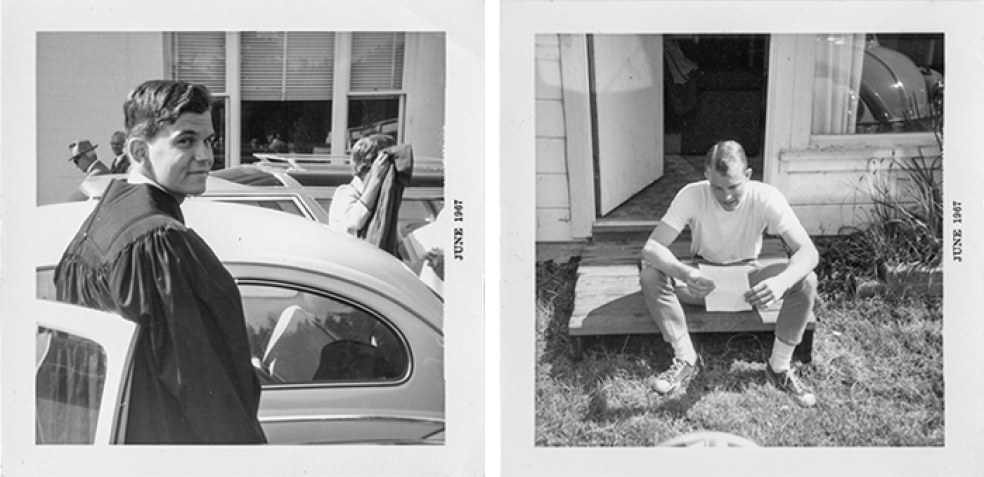
Top: Drs. Jan and Bob Blanks
Middle: Dr. Jeff Burkhart
Bottom: Dr. Ron Fritzsche
In the 1960s, there were four roommates at Humboldt State College. They all studied in the biological sciences and became close friends. Making the most of Humboldt’s incredible natural resources and dedicated professors, they all graduated and would go onto have successful biology careers.
When former HSU Fisheries Biology professor Ron Fritzsche (‘67, Zoology) looks back on his life 50 years after graduating from HSC, he fondly remembers the time he spent with his biology-loving roommates.
“Humboldt really produces fantastic people. Our professors cared about us and gave us the skills to thrive in our careers,” says Fritzsche.
Fritzsche, a 1990 Outstanding Professor Award winner, lived with three other young men: Jeffrey Burkhart (‘67, Biology), a member of the Intercollegiate Knights service fraternity; Robert H. Blanks (‘67, Pre-Medical Sciences), whom Fritzsche remembers as the most studious of the bunch, and Richard Hoard (‘68, Zoology), a popular undergrad due in part to his 1964 Pontiac GTO.
Fritzsche links the group’s success to the personal connections that Humboldt State professors developed with their students. He remembers all four posting nearly perfect scores on the advanced biology portion of the Graduate Record Exam, or GREs. “I went ‘wow’ at all of our scores. Jeff was in the ‘99th-plus’ percentile. What does that mean, there’s one person in the United States who’s got a better score?” Fritzsche says. “It shows the power of the education you receive at Humboldt State.”
The high test scores created opportunities for each roommate to thrive in graduate school and their careers.
Burkhart would go on to earn his Ph.D. at Arizona State University, eventually becoming the Fletcher Jones Professor of Biology professor at the University of LaVerne who focuses on the creatures of the tropics, deserts, and coral reefs.
Blanks was accepted into the physiology doctoral program at UCLA, and taught at UC Irvine before joining Florida Atlantic University as an associate dean. Blanks’ wife, Jan (née Clarenbach), also earned her pre-med degree in 1966 at Humboldt State College before studying at UCLA. Jan specialized in ophthalmology and holds a patent for her work on gene therapy as a treatment for age-related macular degeneration.
Hoard also went to UCLA for dental school and eventually taught at the school in addition to his own private dental practice.
Fritzsche’s life after Humboldt took him to the doctoral program at the Scripps Institution of Oceanography—the first Humboldt State grad to join the prestigious research center. His studies were interrupted by a stint in the Coast Guard, which afforded him the opportunity to travel to the arctic and beyond. Reaching the rank of lieutenant, he left the service to return to Scripps. From there he was a research associate at the University of Maryland before joining the University of Mississippi. In 1980, a dream job opened for Fritzsche: a faculty position at Humboldt State.
Fritzsche, who had originally studied zoology, says the flexibility of studying biology has big advantages for students. “You can pursue multiple pathways because the subject is so broad and those paths sometimes lead to great opportunities.”